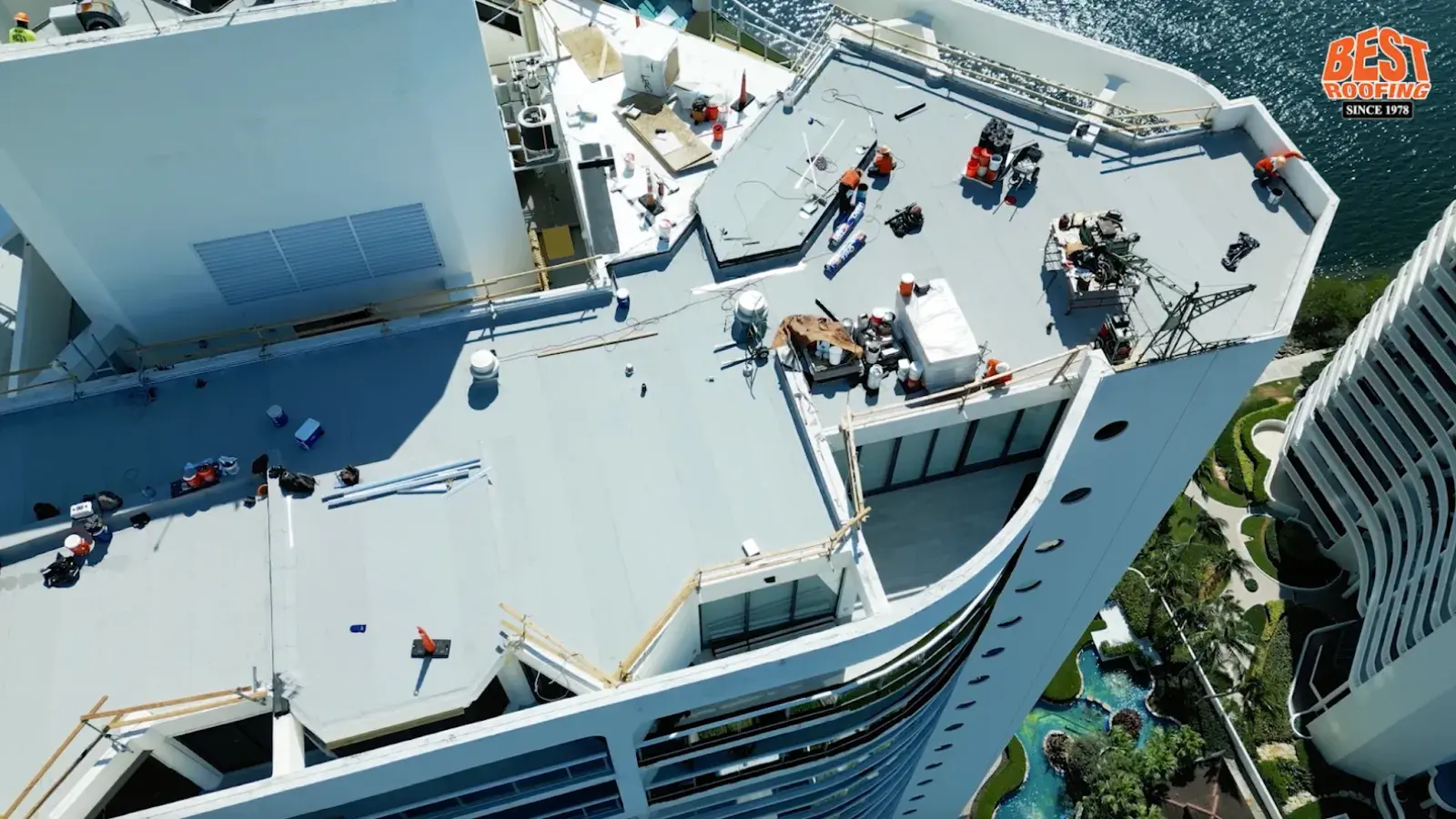Best Flat Roofing Materials for Florida: A Comprehensive Guide
Flat roofs are a common choice for commercial buildings and modern homes in Florida due to their sleek appearance and cost efficiency. However, the unique climate in Florida—characterized by heavy rains, high humidity, and strong winds—requires durable and weather-resistant roofing materials. Here are some of the best flat roofing materials suited for Florida, along with their pros and cons:
1. Modified Bitumen
Pros:
- Durability and Flexibility: Modified bitumen can expand and contract without cracking, essential for temperature fluctuations.
- Waterproofing: Excellent waterproofing capabilities with a multi-layered design that adds extra protection against moisture.
- Ease of Maintenance: Relatively easy to repair and maintain, extending its lifespan significantly.
Cons:
- Installation: Requires professional installation due to its complexity.
- UV Sensitivity: Can degrade over time if not properly protected from UV radiation.



Modified bitumen is a durable, flexible material made from asphalt and reinforced with either polyester or fiberglass. It's designed to withstand extreme weather conditions, making it suitable for Florida's climate. Its multi-layered design adds extra protection against moisture, and it is relatively easy to repair and maintain, extending its lifespan significantly.
For More Information, Visit Our Blog: Ultimate Guide To Modified Bitumen Roofing Systems
2. TPO (Thermoplastic Olefin)
Pros:
- Energy Efficiency: Highly reflective, reducing cooling costs by reflecting UV rays away from the building.
- Durability: Resistant to punctures, tears, and the growth of mold and algae.
- Ease of Installation and Maintenance: Flexible and easy to install, accommodating building movement without compromising integrity.
Cons:
- Heat Sealing: Requires heat welding for seams, which can be a drawback if not properly installed.
- Material Quality Variations: Quality can vary between manufacturers, affecting performance.



TPO roofing membranes are highly reflective, which helps reduce cooling costs by reflecting UV rays away from the building. They are resistant to punctures, tears, and the growth of mold and algae. TPO is relatively easy to install and maintain, and its flexibility allows for accommodating building movement and settling without compromising its integrity.
For More Information, Visit Our Blog: TPO Roofing Systems
3. KEE (Ketone Ethylene Ester)
Pros:
- Chemical and UV Resistance: Highly resistant to chemicals, UV radiation, and extreme weather conditions .
- Durability and Longevity: KEE membranes are known for their long lifespan and durability, maintaining flexibility and strength over time.
- Energy Efficiency: Reflective properties help reduce cooling costs by reflecting sunlight away from the roof.
Cons:
- Cost: Generally more expensive than other flat roofing materials due to its enhanced properties.
- Specialized Installation: Requires professional installation to ensure proper application and performance.



KEE roofing membranes are highly resistant to chemicals and UV radiation, making them ideal for Florida's harsh climate. These membranes maintain flexibility and strength over time, providing long-term durability. KEE roofs are reflective, which helps reduce cooling costs by reflecting sunlight away from the building.
4. Built-Up Roofing (BUR)
Pros:
- Durability: Composed of multiple layers of bitumen and reinforcing fabrics, making it highly durable.
- Waterproofing: Provides excellent waterproofing, essential for flat roofs prone to water pooling.
- Thermal Performance: Can be coated with reflective materials to improve energy efficiency.
Cons:
- Installation Time: Takes longer to install due to its multi-layered design.
- Weight: Heavier than other flat roofing materials, which may require additional structural support.



Built-up roofing, composed of multiple layers of bitumen and reinforcing fabrics, is highly durable and can withstand harsh weather conditions. The layered design adds strength and resilience, and BUR systems provide excellent waterproofing, essential for flat roofs that may collect standing water. BUR systems can also be coated with reflective materials to improve energy efficiency.
To Learn More, Visit Our Blog: Your Guide To Built Up Roofing
Conclusion
Selecting the right material for a flat roof in Florida involves considering factors like durability, weather resistance, energy efficiency, and maintenance requirements. Modified bitumen, TPO, KEE, and BUR are among the best options for flat roofing in Florida, each offering unique advantages and some drawbacks. By choosing a material that aligns with these considerations, homeowners and businesses can ensure long-lasting and effective protection for their properties.
Contact Best Roofing Today For Your Free Roofing Consultation, We Solve Roof Problems.



